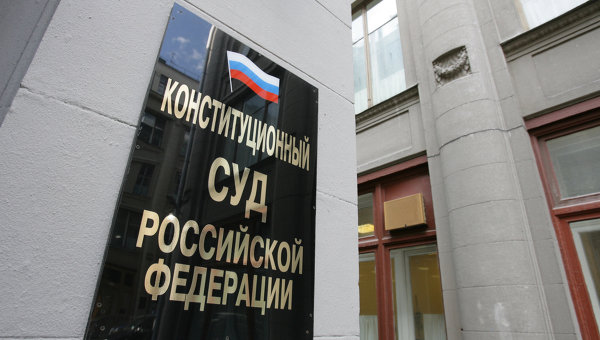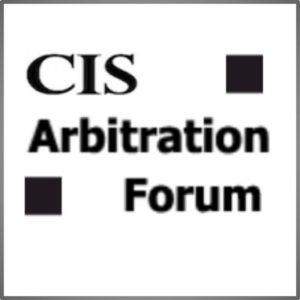Russian Constitutional court denies enforcement of ECHR decision on Yukos
 On 19 January 2017 Russian Constitutional Court came to the conclusion that the decision of the European Court of Human Rights (the ECHR) on compensation payment of more than €1.866 bln on Yukos case violates the Russian Constitution and cannot be enforced. This is the first case in which the Court has followed its 14 July 2015 decision, where it stated that Russia may not enforce decisions under European Convention on Human Rights (the Convention) if they contradict the country’s Constitution.
On 19 January 2017 Russian Constitutional Court came to the conclusion that the decision of the European Court of Human Rights (the ECHR) on compensation payment of more than €1.866 bln on Yukos case violates the Russian Constitution and cannot be enforced. This is the first case in which the Court has followed its 14 July 2015 decision, where it stated that Russia may not enforce decisions under European Convention on Human Rights (the Convention) if they contradict the country’s Constitution.
This case may have far-reaching consequences and become a precedent for the further non-compliance with some decisions of the ECHR.
Yukos in ECHR
In addition to the more famous dispute under the Energy Charter Treaty in Permanent Court of Arbitration in The Hague, on 23 April 2004 former Yukos management also filed claims under the Convention. As the arbitration in PCA, it concerned the alleged expropriation of the Yukos assets by the Russian state through tax reassessment and retroactive taxation, which led to the company’s bankruptcy and liquidation.
The company’s managers claimed that company’s rights were violated under several articles of Convention, including Article 6 (right to a fair trial), Article 1 of Protocol No. 1 (protection of property), Articles 1 (obligation to respect human rights), 7 (no punishment without law), 13 (right to an effective remedy), 14 (prohibition of discrimination) and 18 (limitation on use of restrictions on rights).
On 29 January 2009, the ECHR accepted a part of the Yukos claims. Initially, claimants sought €81 billion of damages and €29,6 billion of interests, later the company changed this number to €37,98 billion. The claimants sought these damages on behalf of all Yukos shareholders (approximately 55,000 of them).
On 20 September 2011 the ECHR ruled that the actions of Russian tax authorities partially violated Yukos’s rights to fairness in legal proceedings and protection of property. At the same time, the ECHR saw no evidence that the case was politically motivated.
On 31 July 2014 the ECHR issued another decision in which it awarded shareholders €1.87 billion damages and €300,000 of costs and expenses, finding Russia failed to strike a “fair balance” in its treatment of Yukos Oil Company.
Russian Constitutional Court
After the ECHR decision, Russia refused to cooperate with Yukos and the ECHR regarding the compensation plan and missed several deadlines relating to it. On 14 July 2015 the Russian Constitutional Court (the Court), in response to a request by a number of Russian MPs made a ruling stating that ECHR decisions do not override the pre-eminence of the Russian Constitution.
Later Russian Ministry of Justice made a further request to the Court asking it to resolve inconsistencies in relation to the enforcement of the ECHR’s decision. Responding to this request, 19 January 2017 the Court decided that the ECHR’s decision violates the Russian Constitution and cannot be enforced.
The Court’s rationale largely followed the arguments made by the Russian Ministry of Justice: that the ECHR’s position on retroactive taxation in Russia contradicted Constitutional Court’s decisions made in 2005 (stating that the State may use retroactive taxation against “dishonest taxpayers”), Additionally the Court stated that the Yukos’s tax avoidance was having “destructive effect” on Russian legal system and on Russia being a “social State” as stated in Article 7 of the Russian Constitution. Based on these the Court decided that the government’s actions against Yukos were justified and ECHR made its decision contrary to the Russian Constitution.
Ministry of Justice also argued against paying Yukos’s legal expenses stating that Yukos’s lawyer was not a proper representative in the ECHR case. The Court, however, refused to review this issue stating that it was within the jurisdiction of ECHR, leaving a chance for recovering those expenses.
Finally, as a sign of conciliation to the ECHR, the Court allowed Russian authorities to pay some of the Yukos ex-shareholders (“those who suffered damage due to the actions of company’s management”) based on good will and from the proceeds of Yukos’s property. However, the Court also stated that this will become possible only after Yukos pays all its debts to the company’s debtors – mainly the Russian Federation itself, which is rather unlikely to happen. 5 out 7 of the judges endorsed the Court’s decision, with 2 issuing dissenting opinions against it.
In response to the Court’s decision former majority shareholders made a statement that these developments highlight Russia’s utter contempt for the rule of law to the extent that it will even violate the European Convention on Human Rights and every person’s guarantee of freedom and justice.
Conclusion
The decision of Russian Constitutional Court constitutes the first case in the history of Europe where a State’s court has prohibited its government to enforce the decision of the ECHR. Even without it, the current Russia’s enforcement statistics stay far from ideal. Even though Russia’s budget includes significant sums designated for the payment of ECHR’s decisions, Russia has already become the leader in non-payment of compensations on ECHR’s decisions. In fact, it has not paid compensations in 252 decisions, some of which as far as in 2009.
This case may further complicate enforcement of ECHR’s decisions in Russia, allowing the State in particular cases to refuse enforcement of ECHR’s decisions stating that they contradict Russian Constitution.










1 Comment on "Russian Constitutional court denies enforcement of ECHR decision on Yukos"
Trackback | Comments RSS Feed
Inbound Links